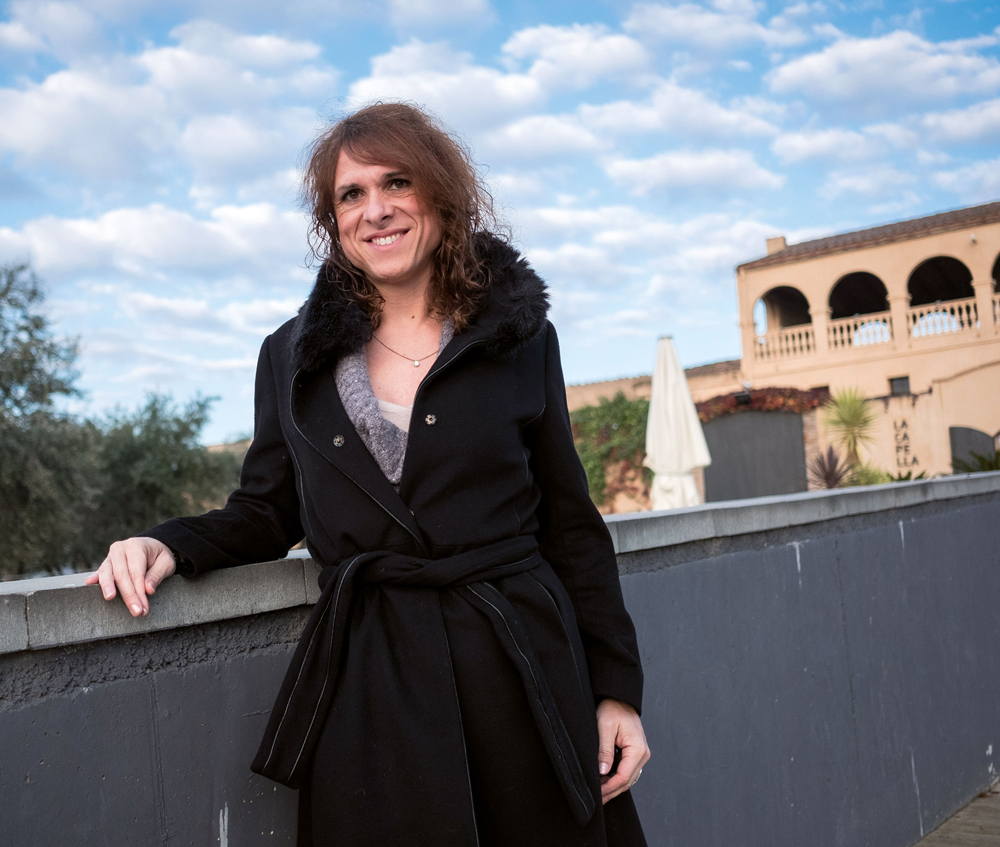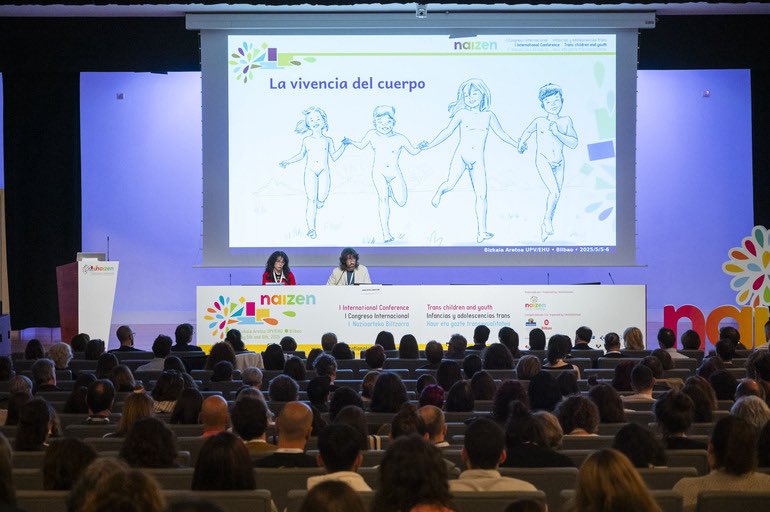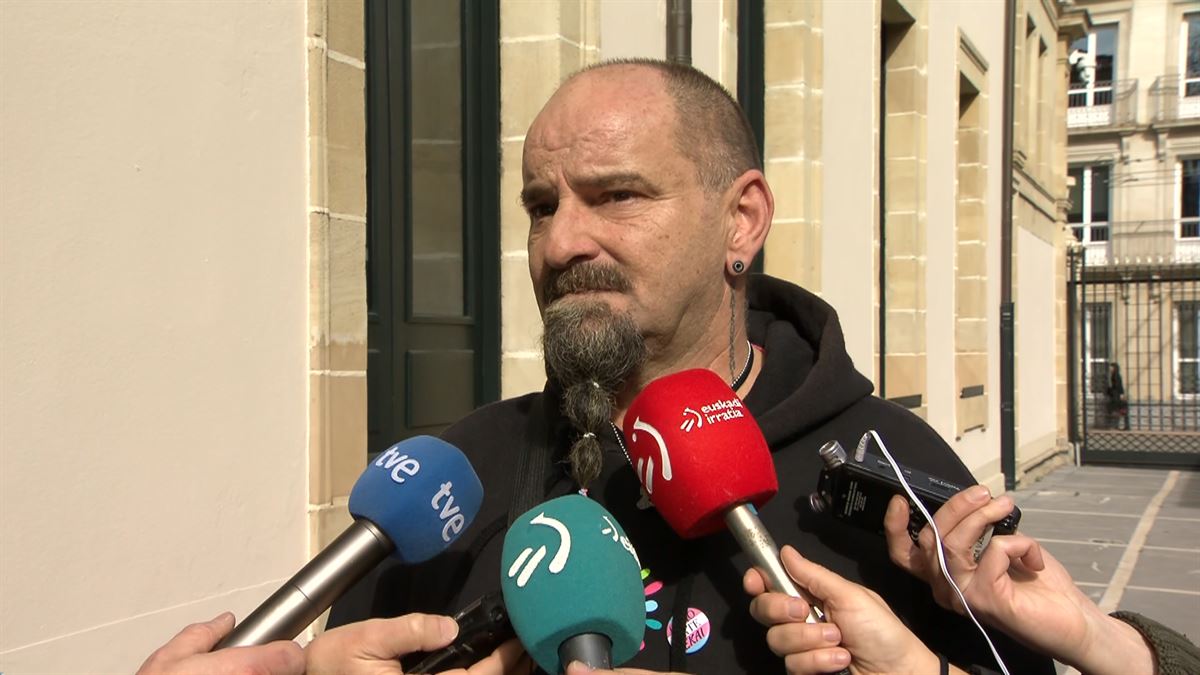"The challenge is to transform gender identity into a civil right"
- On October 24, the Department of Health of Catalonia presented with the Trans*forma la Salut platform the new health care instruction for transsexuals. The platform that brings together nine associations for the protection of the fundamental rights of transgender people aims to put an end to the discrimination that has hitherto been imposed by the health system. We have met with Judit Roura, a member of the Generem platform and partnership, to talk about the achievement and the new challenges.

Three months will soon have elapsed since the submission of the new instruction. Satisfied with the result?
It is certainly good news, because the results of a long-standing struggle have already begun to come. However, we would like to stress that, although the new instruction is already in progress, there are still many nuances to be defined. What we presented on 24 October, rather than the same instruction, is a declaration of intent.
What does it bring in daily life?
The document we present has launched the Transit service in the health system of Catalonia. This makes possible an explicit service that until now was lacking for trans people, especially that the trans being will cease to be a pathology and will be considered a plurality. Among other innovations, the program will seek to integrate transsexuals into the basic network of the health system.
“According to the guidelines approved in Catalonia, ‘trans’ will cease to be a pathology and will be considered a plurality”
This model has been put in place in response to one of your demands.
The truth is that the process has been faster than expected, and to reach this first achievement we have only needed a year and a half. The idea was first launched by Generem, one of the associations that make up the Trans*forma la Salut platform. A few months ago, the health system considered transsexuality a pathology and we started to fight to turn that situation around. The Generem association drafted a draft, but soon realized that it was not strong enough and the solution was to create a network of partnerships with the same objective. We all drew up the draft and presented it in June in Parliament. The creation of this network has been key. In addition, with the problem, we put a solution on the table.
Until now, the health system of Catalonia has treated transsexuals through the Identity Gender Unit (UIG). If I am not mistaken, they also made a complaint by submitting the new instruction.
Yes, we collected a total of 70 testimonies with the objective of showing the total discrimination of this system. For example, if a trans woman said she was a lesbian, she didn't have the right to hormone treatment, because instead of being transgender, she was considered travestous. Or, for example, those over the age of 50 did not have the right to surgery. It was humiliating.
Will it replace the new models and, as a result, will the IGU disappear?
We are calling for their disappearance. And above all, we will not accept recycling, if that were the case, the health system would continue to pathologize to trans people. Unfortunately, however, it has not disappeared at the moment.
Do you think society is uninformed about trans people?
Totally. Finally, not uninformed, society is deformed from top to bottom. Social stigma carries a great burden and trans women carry that burden on us. We are always accused of prostitution, drug addiction and others. In short, we are the garbage of society. There is enormous discrimination. And transsexual men are silenced. But because we are part of society, we need the recognition of society.

Is the new model a training procedure?
We have proposed three educational axes. The first one is general and is aimed at society, to clarify that transgender people are people. The second is addressed to the health system, which includes information that transgender people should know when they approach the doctor, what they should do and what they should not. The third is aimed at health care professionals, that is, those who work directly with transsexuals. There's tremendous ignorance, and we've endured so many.
Examples?
What answer should be given to a transsexual woman who needs an analysis of the prostate? What if a trans man wants to inseminar to have children? It is imperative that transgender people have the same rights as people with sub-gender. It doesn't matter where you come from, but what you are. Until now, the health system has not endorsed it, as they acted under the premise of local professionals, that there were no concrete policies in this sense. It's a matter of vision.
The challenge is to make the final decision of the person?
No doubt. Since it is not a disease, the doctor has no words. It can, of course, offer recommendations for them to be informed of the benefits and risks of any procedure, but it is unacceptable that the decision is in their power. The job of doctors is to meet the needs of transgender people. There are no generic solutions.
You've taken the first step in the health system. Are they planning to set up educational or judicial guidelines in the future?
Yes, but slowly. The most important thing is that of Osasuna, which is certainly a vital problem. It is unfair and unacceptable that transgender people should be recognised as ill and should have been turned around. Our challenge is to stop being a feature of the gender identity assigned from birth and turn it into a civil right. This struggle is not only beneficial for trans people, but for the whole of society. For the day we are free you will be freer. Then the others will come...
“One of the educational axes we have proposed is aimed at health care professionals, with great ignorance and
suffering terrible”
Let's talk about operations. Until recently there was an age border. Does the new model bring novelties?
Yes, there will be no age limit, as the age is entirely artificial. For example, girls around the world are taking blocking hormones to prevent menstruation from dropping by the age of 10. It therefore makes no sense to limit the age of transgender people. Of course, we know that the hormonal procedure can have positive or negative effects. But it's not harmful to your health. Simply, the changes the body would make on its own would not happen, and it was over.
One of the main problems of transgender people is, among others, the long list of surgical interventions. Has there been any change in recent years?
Although the number of interventions has increased, the waiting list is still impressive. Before it was fifteen years, it has now been reduced. What we are asking for is not to have advantages, but to be on the same level as the rest of the waiting lists.
What is the main challenge from now on?
Integrating this diversity into all perspectives of society. Society has taken steps forward, but in some respects it is still too reactionary. Trans people continue to suffer exclusion, and some justify that being trans is too hard an experience. They do not lack reason, but there are many hard experiences: having a child, a separation... And we're not trying to solve it through psychiatry. These are decisions that are within freedom, and in the same logic, gender identity should be a free choice.
Errepikatu nirekin: Sara Millerey. Ez dezagun ahaztu bere izena. Transfeminizidioaren biktima da Millerey: gorrototzaile transmisogino batek torturatu zuen, besoak moztu zizkion eta bizirik bota zuen ibaiertz batera. Bi orduko agoniaren ondoren hil zen.
Errazagoa da J.K... [+]

























